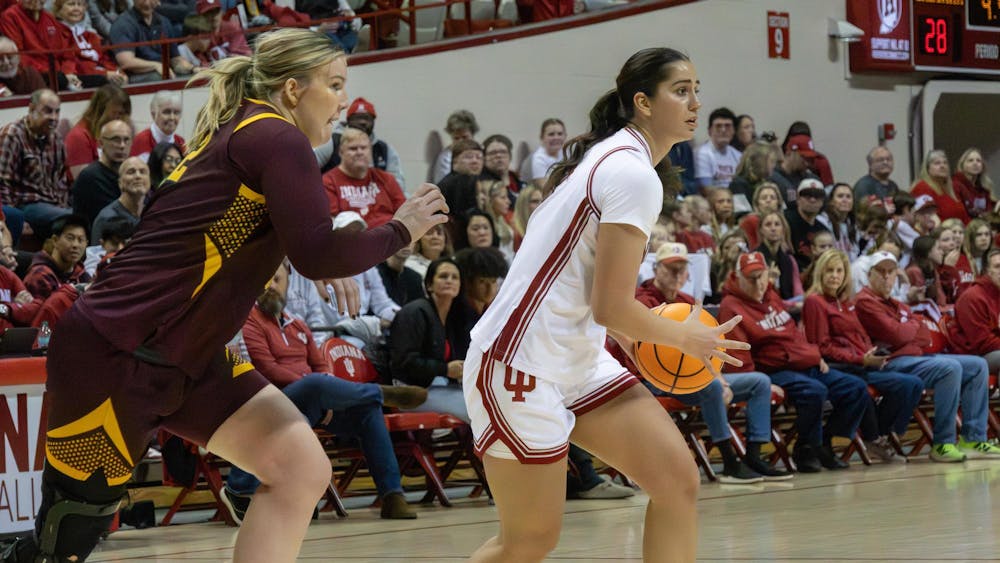The IU School of Medicine announced on Thursday that they are testing a vaccination which may help prevent genital herpes.\nMary Hardin of the IU School of Medicine Media Relations announced that infectious disease physicians from the medical school are running the tests in several locations throughout Indiana for not only the herpes vaccine, but also a vaccine for hepatitis A. \nDr. Kenneth Fife, the main researcher of the trials, is looking to test women between the ages of 18 and 30 who are not infected with oral or genital herpes. The women will be chosen at random to receive either a hepatitis A vaccine or the herpes vaccine. Although the hepatitis A vaccine has already been approved by the Federal Drug Administration, the clinic is testing the strength of the drug, the number of doses needed and the number of injections needed. Through these tests, the research team hopes to improve the hepatitis A vaccine. \n"This is the third and most likely the last phase of the trials," Nurse Practioner Nancy Hobson said. "We have been doing trials on this vaccine for the last seven years." \nThe herpes virus can infect on two levels; herpes simplex 1, which typically comes in the form of cold sores or fever blisters and herpes simplex 2, genital herpes. If the vaccine is successful, both forms could be prevented. \nThe trial is being publicized all over Indiana college campuses, as well as through national advertising. The only minor side effect is a slight tenderness at the sight of the injection, which comes with almost any injection. Women are given $360 over a period of 20 months and of course, a free vaccination test.\n"The vaccine will not cure individuals already infected, but could have a huge effect on protecting women and their partners from this sexually transmitted disease," Fife said in a statement. "The trial is for individuals who have not contracted either form of herpes, which makes the screening process more difficult since many people are exposed to herpes through cold sores at an early age."\nSue Ford, the study coordinator of the vaccination testing, said 100 women have been screened on the IU-Purdue University at Indianapolis campus so far. Their intention is to screen 2,000 women in order to get 500 tests they can use. \n"One out of every four women tests positive for herpes simplex 1 or herpes simplex 2, and we can only use tests that are double negative," Ford said.\nIf the vaccine is approved by the FDA, women will be able to use it as a protection against the disease. Although the most serious symptom of the disease among adults tends to be general discomfort, it is currently preventable only through abstinence. If a woman is infected while she is pregnant, it can cause severe damage to her unborn child.\nInvestigators are apprehensive about the reaction of parents vaccinating their children if the drug is approved. Greg Zimet, Ph.D. and professor of pediatrics and clinical psychology said he is confident that this is not an issue to worry about.\n"Parents have exhibited an overwhelming willingness to have their children vaccinated," Zimet said. "There has been no difference in attitudes about vaccinations for non-sexually transmitted infections and those for STD protection."\nZimet ran a behavioral study among 300 adolescent-parent pairs who filled out a questionnaire regarding the issue. The typical response by the parents was to question the likelihood of their child becoming infected and what they could do to prevent it. \nThe trial will be held at 20 different locations throughout the United States and their goal is to enroll over 7,500 women.\nThe vaccination will continue to run until the clinics have fulfilled the amount of women they want to test. \n"One of the most common concerns with the test is that it will give you genital herpes," Ford said. "This is just a myth and entirely impossible."\n-- Contact staff writer Lindsay Kaplan at lkaplan@indiana.edu.
IU doctors try to cure STDS
IU School of Medicine tests vaccinations for herpes, hepatitis A
Get stories like this in your inbox
Subscribe





